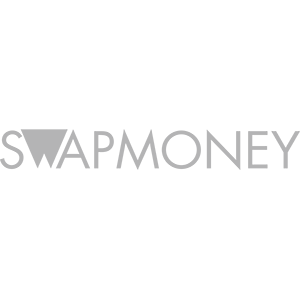From micro-investing platforms that enable the everyman to dip their toes in the stock market to automated financial planning services, a new breed of financial innovation is bringing the wealth management universe to our fingertips: Wealthtech. This fusion of the words “wealth” and “tech” has come to symbolise the financial technology companies that are transforming the sector through the creation of digital solutions – both for end investors and the firms that service them.
And it’s booming: according to Capgemini’s World Wealth Report 2021 , Wealthtech companies generated significant funding in 2020, reaching an annual record of US$3.7 billion, up more than 50% compared with 2019 when US$2.4 billion was raised – demonstrating robust investor appetite amid the global pandemic.
Using sophisticated algorithms and artificial intelligence, embedded finance providers – like DriveWealth – offer similar services to traditional wealth management companies, but at much lower cost and with greater flexibility. This innovation is breaking down barriers that have made the sector the preserve of high-net-worth individuals – ridding it of its reputation for being complicated and costly and making it more accessible.
The rise of B2C wealth and savings apps
Traditionally, wealth management companies have been slow to adopt digital technologies, blinkered by the belief that their clients’ needs can be serviced with an account manager led personal service. However, in recent years, financial technology has completely reshaped the wealth management landscape, exposing these legacy players’ lack of foresight and agility.
Today’s financial consumers demand seamless wealth management options in the palm of their hand – from anywhere and at any time. The ubiquity of smartphones and our utter reliance on the convenience they offer has driven this trend, giving rise to the neo-broker : Wealthtech start-ups that are disrupting the investment and wealth management sector by creating finance apps that make stock markets and innovative tools accessible to a wider consumer base. Here are two prime examples of how this is being manifested:
Wealth investment apps
For too long ordinary investors got the short end of the stick: limited access to markets combined with high fees often put them off. Wealth investment apps are challenging the status quo, allowing users to start investing based on their strategy and beliefs – from apps like Lightyear that facilitate low-cost fractional investing and informed decision making to Tulipshare, an activist investment platform that is dedicated to social and environmental progress.
Savings apps
Forget stuffing bundles of cash under the mattress, savings apps allow users to set goals, check how they’re spending money, allocate funds to different accounts and monitor how much they’ve amassed. In addition to making saving more convenient and available, some apps have made it more engaging using gamification and seamless through round-up technology – such as Moneybox, which will round up the cost of the user’s purchases to the nearest pound and save the change for them.
With customer experience at the core of their offering, these apps allow their clients to engage with innovative investment and wealth management tools that tick all the boxes: quick, intuitive, flexible, convenient, and cost-effective. Meanwhile, forward-thinking wealth management companies that don’t want to be left behind can embrace the Wealthtech ecosystem – opening the door to new innovation-led revenue streams.
This democratisation of the sector through the emergence of neo-broker apps has done more than just disrupt legacy providers; it is also helping to breed a new generation of financially literate investors – and their popularity is growing at a rapid rate. Take Freetrade, the investment app which levels the financial playing field by offering commission-free trading. Since launching an iOS app in October 2018, followed by an Android version in April 2019, they have amassed over 800,000 users.
The Wealthtech ecosystem: home of the neo-broker
The Fintech Biosphere – which Wealthtech falls under the broader umbrella of – is comprised of start-ups, corporates, governments, regulatory bodies, investors, and others collaborating to drive technological innovation and economic development. The Wealthtech ecosystem is, therefore, an exciting mix of neo-broker start-ups and relevant stakeholders working in partnership to bring new technology to the investment and wealth management market that drives it forward.
Knowing you want to enter the Wealthtech ecosystem by starting up a neo-broker is the easy part – after all, the benefits are compelling: accessing new global markets, harnessing innovative products and services, accelerating progress, and attracting self-sustaining cycles of investment. However, forming the partnerships you will need to make it a reality is less straightforward. To successfully navigate today’s dynamic industry trends – from shifting customer preferences to new regulatory hurdles – and bring your product to market, you will need to partner with a triumvirate of experts: regulation and compliance, execution broker, and e-money/FX providers.
Regulatory hosting firm
Regulation and compliance underpin an industry’s ability to function effectively, but they are often confusing and intimidating. Consequently, neo-broker start-ups face a common challenge: finding out if their product falls under the remit of the Financial Conduct Authority (FCA) – the financial regulatory body in the UK that operates independently of the UK government.
Direct Authorisation with the FCA is the traditional approach to addressing your regulatory requirements, but this can be time-consuming and costly. For this reason, many start-ups choose to accelerate their route to market by becoming an Appointed Representative of a principal firm that is already directly authorised with the FCA.
Daniel Tammas-Hastings from RiskSave Compliance – a provider of comprehensive regulatory solutions that act as a catalyst for growth – explains how this works:
“Instead of waiting a year or more to launch, these start-ups are supervised by a regulatory hosting firm, like RiskSave, which has the relevant internal skill base and regulatory permissions – and will be held accountable by the regulator for any failings in the Appointed Representative’s activities. Investors and managers at digital brokers find a great deal of comfort in the reduced execution risk. Good examples of firms using this approach include Lightyear and Emma Financial.”
Crucially, the process of becoming an Appointed Representative is measured in weeks rather than months. Furthermore, the regulatory hosting firm will often advise on compliance and operational issues, reducing the neo-broker ’s employee requirements and capital costs.
Execution broker
You know you want to provide an innovative investment experience, but do you know how you’re going to power it? Execution brokers – like Alpaca and DriveWealth – allow start-ups to integrate cloud-based, API-driven brokerage infrastructure into their platform. This forms the cornerstone of any investment experience they design – from trading and investing to roundups and rewards. These global, purpose-built platforms allow them to launch quickly and easily, so they can focus on their strategy and core business.
Developed to support web applications and mobile devices they power exciting investment experiences remotely 24/7:
- Account onboarding and funding
- Trading/investing
- Market data
- Corporate actions and events
- Account statements and trade confirmations
This ability to embed investing into new digital experiences and effortlessly convert consumers into investors is a vital component of bringing B2C wealth and savings apps to market.
Learn more
- Embedded Finance: Opening the door to a new breed of investor
- Smarter investments: Financial literacy through action
FX and e-money provider: moving money across borders
The vital process of moving money around the world to purchase stock is often time-consuming and expensive when performed using antiquated payment networks. Therefore, to offer a truly global – and frictionless – investment app, neo-broker start-ups must also partner with a scalable cross-border payment and multi-currency specialist like Currencycloud.
Their full-scale Software-as-a-Service solution provides the financial infrastructure that neo-brokers need to move money across borders as part of their investment experience. This multi-currency account infrastructure dovetails seamlessly with execution broker platforms, allowing users to rapidly collect, convert, pay and manage currencies simultaneously, wherever they are in the world. For example, FxPro/BnkPro has leveraged this innovation to offer flexible and convenient e-money solutions that enable customers to have clear visibility on their expenses, access competitive exchange rates and make transactions through SEPA, SWIFT, BACS and CHAPS.
Alexander Barr from Currencycloud outlined why working in partnership with a dedicated cross-border payment and multi-currency specialist is a vital step when taking products to market:
“The ability to move money across borders quickly and transact globally in multiple currencies typically forms the foundation of the Wealthtech proposition. Get this wrong and start-ups will be left rudderless. Currencycloud can pave the way to success by taking on the complexity of multi-currency cross-border business on our client’s behalf – so they can simply plug-in and begin their journey.”
Wealthtech is doing more than just gaining traction; it’s going from strength to strength and is here to stay – making it a vital cog in the financial services sector’s rapid adoption of all things digital. This exciting trend is being perpetuated by the alignment of forward-thinking technologies – such as those provided by RiskSave and Currencycloud with exciting neo-broker innovation – to create a well-balanced Wealthtech ecosystem; one that neo-brokers can embrace with ease and users can grow and manage their wealth in more conveniently than ever before.
To find out more about how Currencycloud could help your business, speak with our Wealthtech experts.




